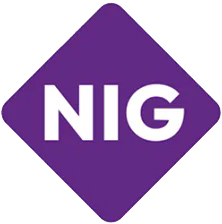Domiciliary Care Employers Liability Insurance: Protecting Your Home Care Staff
Domiciliary care providers face unique challenges when it comes to protecting their workforce. Unlike traditional office-based businesses…






Domiciliary care providers face unique risks that standard business insurance policies don't adequately address. From professional negligence claims and medication errors to safeguarding issues and CQC compliance requirements, home care agencies require comprehensive insurance protection tailored to their specific care delivery model.
Whether you're a small family-run care agency, established domiciliary care provider, or large home care organization, you need insurance that understands the complexities of providing personal care in clients' homes, managing care staff, and meeting stringent regulatory requirements.
Essential protection against claims arising from professional negligence, care plan errors, medication mistakes, and failure to provide adequate care standards.
Protects against claims from clients, family members, or third parties who may be injured or have property damaged during care visits.
Legally required coverage protecting against claims from care staff who may be injured or become ill as a result of their work.
Specialist coverage for clinical care decisions, treatment errors, and medical negligence claims specific to domiciliary healthcare services.
Critical protection against allegations of physical, emotional, financial, or sexual abuse by care staff, including historical claims.
Essential protection for care providers handling sensitive client data, medical records, and operating digital care management systems.
Compensates for lost income and increased costs if your care operations are disrupted due to an insured event.
Protects your office premises, equipment, care supplies, and business contents against fire, theft, flood, and other perils.
Comprehensive coverage for care staff vehicles used for client visits, including personal cars used for business purposes.
Comprehensive coverage for charity vehicles including minibuses, delivery vehicles, and cars used for charity business.
Protection against employment-related claims including wrongful dismissal, discrimination, and harassment allegations from care staff.
Domiciliary care providers face unique challenges that require specialist insurance consideration:
Getting comprehensive domiciliary care insurance is straightforward with our streamlined process:
Domiciliary care providers must comply with various regulations and legal requirements:

I just bought an Insure24 domiciliary care insurance policy, for my business partner's and me, and saved £1205 a year!
Sue Evans , Inspire Domiciliary CareDon't leave your domiciliary care business exposed to unnecessary risks.
Our specialist team will assess your venue's unique needs and provide a comprehensive insurance solution that protects your business, your customers, and your livelihood.
Call us now: 0330 127 2333
Or get an instant online quote at insure24.co.uk
What types of domiciliary care services do you insure?
We provide insurance for all types of domiciliary care services including personal care, domestic assistance, companionship services, respite care, dementia care, learning disability support, mental health services, and specialist nursing care in the home.
Do I need professional indemnity insurance for domiciliary care?
Yes, professional indemnity insurance is essential for domiciliary care providers. It covers claims arising from care planning errors, medication mistakes, inadequate care provision, and failure to follow care plans or recognize client deterioration.
What is abuse liability insurance and why do I need it?
Abuse liability insurance protects against allegations of physical, emotional, financial, or sexual abuse by care staff. This coverage is crucial for domiciliary care providers as it includes both current and historical abuse claims, plus crisis management support.
How much does domiciliary care insurance cost?
Domiciliary care insurance costs typically range from £1,500-£8,000 annually depending on your business size, services provided, staff numbers, client complexity, and coverage requirements. Specialist care services may require higher premiums due to increased risks.
Do I need separate insurance for CQC compliance?
While there's no separate CQC insurance, your domiciliary care policy should include regulatory protection covering CQC enforcement actions, suspension costs, and legal defense for regulatory investigations and compliance failures.
What happens if a client is injured during care provision?
Client injuries during care provision would typically be covered under your public liability insurance if due to negligence, or professional indemnity insurance if related to care decisions. The specific coverage depends on the circumstances of the incident.
Are care workers covered when using their own vehicles?
Care workers using personal vehicles for business purposes need appropriate motor insurance with business use coverage. We can arrange policies covering care staff vehicles and equipment in transit during client visits.
Do I need cyber insurance for my care business?
Yes, cyber insurance is essential for domiciliary care providers handling sensitive client data, medical records, and care plans. Data breaches can result in significant GDPR fines and reputation damage that cyber insurance helps cover.
What insurance covers medication administration errors?
Medication administration errors are covered under professional indemnity insurance. This includes wrong medication, incorrect dosages, missed medications, and failure to follow medication administration protocols.
Can I get insurance if I'm a new domiciliary care provider?
Yes, new domiciliary care providers can obtain comprehensive insurance coverage. We'll assess your planned services, staff qualifications, and CQC registration status to provide appropriate protection from the start of operations.
What about insurance for live-in care services?
Live-in care services require enhanced coverage due to extended exposure and higher risks. This includes 24-hour care liability, overnight supervision coverage, and potentially higher professional indemnity limits for complex care needs.
Do I need employers liability for agency care workers?
If you employ care workers directly, employers liability insurance is legally required. For agency workers, coverage depends on the employment relationship - we'll assess your specific arrangements to ensure appropriate protection.
What insurance covers safeguarding failures?
Safeguarding failures can be covered under professional indemnity insurance for policy and procedure failures, and abuse liability insurance for actual harm to clients. Both coverages are essential for comprehensive protection.
Can I get insurance for specialist dementia care services?
Yes, specialist dementia care requires enhanced coverage due to increased risks including wandering, falls, challenging behavior, and complex care needs. We work with insurers experienced in dementia care risks.
What happens if my CQC registration is suspended?
Business interruption insurance can cover lost income during CQC suspension, while regulatory protection covers legal costs for defending against enforcement actions and working toward registration reinstatement.
Do I need different insurance for NHS-funded clients?
NHS-funded care may require specific insurance requirements including minimum liability limits and particular coverage types. We'll ensure your policy meets NHS commissioning and local authority contract requirements.
What insurance covers care plan assessment errors?
Care plan assessment errors are covered under professional indemnity insurance. This includes inadequate initial assessments, failure to update care plans, and not recognizing changing care needs or health deterioration.
Can I get insurance for end-of-life care services?
End-of-life care services can be covered but may require enhanced professional indemnity coverage due to the sensitive nature and higher emotional impact of claims. Specialist palliative care experience may be required.
What about insurance for learning disability support services?
Learning disability support requires specialist coverage considering behavioral challenges, communication difficulties, and complex support needs. Enhanced public liability and professional indemnity coverage is typically required.
Do I need product liability insurance for care equipment?
If you supply or recommend care equipment, product liability insurance may be required. This covers claims arising from defective equipment, inappropriate recommendations, or equipment-related injuries to clients.
What insurance covers financial abuse allegations?
Financial abuse allegations are covered under abuse liability insurance. This includes theft of client money or property, misuse of client finances, and allegations of financial exploitation by care staff.
Can I get insurance for 24-hour care services?
24-hour care services require enhanced coverage due to continuous exposure and higher risks. This includes overnight care liability, sleep-in staff coverage, and potentially higher liability limits for complex care situations.
What happens if a care worker is injured in a client's home?
Care worker injuries in client homes are covered under employers liability insurance. This includes manual handling injuries, slips and falls, violence from clients, and occupational health issues related to care work.
Do I need insurance for family member carers?
If family members are employed as care workers, they need the same insurance protection as other staff. However, if they're providing unpaid family care, different arrangements may apply depending on your service model.
What insurance covers mental health care services?
Mental health domiciliary care requires enhanced professional indemnity covering counseling, therapy, and mental health support services. Additional considerations include suicide risk, self-harm, and complex behavioral challenges.
Can I get insurance if I've had previous claims?
Previous claims don't automatically prevent coverage, but they may affect premiums and terms. We work with insurers who understand that some care claims are unavoidable and focus on your current risk management practices.
What about insurance for respite care services?
Respite care services can be covered under standard domiciliary care policies, but may require consideration of higher client complexity, family dynamics, and potentially enhanced coverage for short-term intensive care periods.
Do I need separate insurance for care coordination services?
Care coordination and case management services require professional indemnity coverage for care planning, service coordination, and liaison with healthcare professionals. This may be included in comprehensive domiciliary care policies.
What insurance covers client property damage?
Damage to client property during care provision is covered under public liability insurance. This includes accidental damage to furniture, personal belongings, or home fixtures during care activities.
Can I get insurance for supported living services?
Supported living services have different risk profiles than traditional domiciliary care and may require specialized coverage considering tenancy issues, 24-hour support, and complex client needs. We can arrange appropriate coverage.
How much does domiciliary care insurance cost per year in the UK?
Domiciliary care insurance costs in the UK typically range from £1,500-£8,000 annually depending on your business size, services provided, staff numbers, client complexity, and coverage requirements. Small agencies with basic personal care may pay around £1,500, while large providers offering specialist nursing care may pay £8,000 or more.
What insurance do I need to start a domiciliary care agency?
To start a domiciliary care agency, you need professional indemnity insurance (minimum £1 million), public liability insurance (minimum £2 million), employers liability if hiring staff, abuse liability insurance, and cyber liability for data protection. CQC registration also requires proof of appropriate insurance coverage.
Is professional indemnity insurance mandatory for home care providers?
While not legally mandatory, professional indemnity insurance is essential for home care providers and often required by CQC, local authorities, and NHS commissioners. It covers care planning errors, medication mistakes, and failure to provide adequate care standards.
What insurance covers domiciliary care worker accidents?
Care worker accidents are covered under employers liability insurance, which is legally required for all care agencies employing staff. This covers manual handling injuries, slips and falls in client homes, violence from clients, and work-related stress or illness.
Do I need abuse liability insurance for domiciliary care?
Yes, abuse liability insurance is crucial for domiciliary care providers. It covers allegations of physical, emotional, financial, or sexual abuse by care staff, including historical claims. This coverage also includes crisis management and reputation protection services.
What insurance do mental health domiciliary care services need?
Mental health domiciliary care services need enhanced professional indemnity covering counseling and therapy, public liability for client interactions, specialized abuse liability for vulnerable clients, and potentially clinical negligence coverage for treatment decisions and suicide risk management.
Can domiciliary care agencies get insurance for medication administration?
Yes, medication administration by care staff is covered under professional indemnity insurance. This includes wrong medication errors, incorrect dosages, missed medications, adverse drug reactions, and failure to follow medication administration protocols and care plans.
What insurance covers CQC enforcement action and suspension?
Regulatory protection insurance covers legal defense costs for CQC enforcement actions, while business interruption insurance compensates for lost income during CQC suspension or registration cancellation. Both are essential for comprehensive regulatory protection.
Do live-in care services need different insurance?
Live-in care services require enhanced insurance coverage due to 24-hour exposure and higher risks. This includes extended professional indemnity limits, overnight care liability, sleep-in staff coverage, and potentially higher public liability limits for complex care situations.
What insurance do dementia care specialists need?
Specialist dementia care requires enhanced coverage including higher professional indemnity limits for complex care decisions, public liability for wandering and falls, abuse liability for vulnerable clients, and potentially behavioral management coverage for challenging situations.
Is cyber insurance necessary for small domiciliary care agencies?
Yes, cyber insurance is essential for all domiciliary care agencies handling client data, medical records, and care plans. GDPR breaches can result in fines up to £17.5 million or 4% of annual turnover, making cyber liability coverage crucial for data protection compliance.
What insurance covers domiciliary care vehicle accidents?
Care staff vehicle accidents are covered under commercial motor insurance with business use classification. This includes accidents during client visits, equipment damage in transit, and liability for passengers. Personal car insurance doesn't cover business use.
Do NHS-funded domiciliary care contracts require special insurance?
NHS-funded care contracts typically require minimum insurance levels including £6 million public liability, professional indemnity, employers liability, and often abuse liability coverage. Specific requirements vary by Clinical Commissioning Group and local authority contracts.
What insurance covers learning disability support services?
Learning disability support services need specialist coverage including enhanced public liability for behavioral challenges, professional indemnity for complex support decisions, abuse liability for vulnerable clients, and potentially property damage coverage for challenging behaviors.
Can domiciliary care insurance cover family member employees?
Family members employed as care workers must be covered under employers liability insurance like any other employee. However, unpaid family carers providing informal care aren't covered under business insurance and may need separate personal arrangements.
What insurance do end-of-life care services need?
End-of-life care services require enhanced professional indemnity for palliative care decisions, public liability for family interactions, potentially clinical negligence for pain management, and sensitive claims handling due to the emotional nature of end-of-life care.
Do domiciliary care agencies need product liability insurance?
If you supply or recommend care equipment, mobility aids, or medical devices, product liability insurance is essential. This covers claims arising from defective equipment, inappropriate recommendations, or equipment-related injuries to clients.
What insurance covers respite care services?
Respite care services are typically covered under standard domiciliary care policies but may require enhanced coverage for higher client complexity, family dynamics, emergency care situations, and potentially short-term residential care arrangements.
Can new domiciliary care providers get immediate insurance coverage?
Yes, new domiciliary care providers can obtain immediate insurance coverage. We assess your planned services, staff qualifications, CQC registration status, and provide appropriate protection from day one of operations, with policies that can grow with your business.
What insurance covers supported living services?
Supported living services require specialized coverage considering tenancy issues, 24-hour support arrangements, complex client needs, property management risks, and potentially different liability structures than traditional domiciliary care services.
Do domiciliary care agencies need employment practices liability insurance?
Employment practices liability insurance is important for care agencies, covering wrongful dismissal claims, discrimination allegations, harassment claims, wage disputes, and whistleblowing protection. This is often included in management liability policies.
What insurance covers care coordination and case management?
Care coordination services require professional indemnity coverage for care planning, service coordination, liaison with healthcare professionals, discharge planning, and potentially clinical oversight responsibilities. This may require enhanced professional indemnity limits.
Can domiciliary care insurance cover overseas care services?
Overseas care services can be covered with policy extensions, but require additional considerations including international liability, medical evacuation, political risk, and compliance with local healthcare regulations and insurance requirements.
What insurance do specialist nursing care agencies need?
Specialist nursing care agencies need enhanced clinical negligence insurance, higher professional indemnity limits, specialized equipment coverage, and potentially medical malpractice insurance depending on the complexity of nursing procedures provided in clients' homes.
Do domiciliary care agencies need directors and officers insurance?
Directors and officers insurance is important for incorporated care agencies, protecting directors from personal liability for management decisions, regulatory investigations, employment disputes, and potential insolvency situations affecting care service continuity.
What insurance covers financial abuse by care staff?
Financial abuse by care staff is covered under abuse liability insurance and potentially fidelity insurance. This includes theft of client money, misuse of client bank cards, unauthorized financial transactions, and allegations of financial exploitation.
Can domiciliary care agencies get insurance for telehealth services?
Telehealth and remote monitoring services can be covered under professional indemnity insurance with appropriate extensions. This includes technology failures, remote assessment errors, communication breakdowns, and cyber liability for digital health platforms.
What insurance covers domiciliary care equipment and supplies?
Care equipment and supplies are covered under business contents insurance, including mobile equipment used in client homes. This covers theft, damage, and loss of care equipment, medical supplies, and technology used for care delivery and monitoring.
Do charity-run domiciliary care services need different insurance?
Charity-run care services may benefit from charity-specific insurance rates and coverage, but still need the same core protections including professional indemnity, public liability, abuse liability, and employers liability as commercial care providers.
What insurance covers domiciliary care during pandemic situations?
Pandemic coverage varies by insurer and policy, but may include business interruption for quarantine periods, additional PPE costs, staff shortage coverage, and potentially communicable disease liability. Post-COVID policies may have specific pandemic exclusions.
Can domiciliary care agencies get insurance for complex medical procedures?
Complex medical procedures in the home require enhanced clinical negligence coverage and potentially medical malpractice insurance. This includes wound care, catheter management, ventilator care, and other procedures typically performed in clinical settings.
What insurance do domiciliary care franchises need?
Care franchises must meet franchisor insurance requirements, typically including minimum liability limits, specific coverage types, and naming the franchisor as additional insured. Professional indemnity may be required for brand protection and consistency.
Do domiciliary care agencies need key person insurance?
Key person insurance is valuable for care agencies dependent on key managers, clinical leads, or CQC registered managers. This covers lost income and recruitment costs if key personnel are unable to work due to illness or injury.
What insurance covers domiciliary care data breaches?
Data breaches are covered under cyber liability insurance, including GDPR breach notification costs, regulatory fines, legal defense costs, credit monitoring for affected clients, forensic investigation costs, and reputation management following data security incidents.
Can domiciliary care agencies get insurance for social care assessments?
Social care assessments require professional indemnity coverage for assessment errors, inadequate care planning, failure to identify risks, and recommendations that result in inadequate or inappropriate care provision. Enhanced limits may be required for complex assessments.
Domiciliary care providers face unique challenges when it comes to protecting their workforce. Unlike traditional office-based businesses…
Private domiciliary care has become an increasingly vital service in the UK healthcare landscape, providing essential support to indivi…
Domiciliary care, also known as home care or community care, represents one of th…
Domiciliary care services provide essential support to vulnerable individuals in their own homes, hel…
Specialist domiciliary care services provide essential support to vulnerable individuals in their own homes, offering everything …
Domiciliary care services rely heavily on vehicles to deliver essential care to clients in their own homes. Whet…
Domiciliary care providers face unique operational challenges that can severely disrupt service deliv…
Domiciliary care management represents one of the fastest-growing sectors in UK healthcare, with increasing numbers of individual…
Domiciliary care equipment forms the backbone of quality home healthcare services across the UK. From mobili…
Domiciliary care rehabilitation services provide essential recovery support to patients in the comfort of their…
Domiciliary care providers face unique legal challenges when delivering healthcare services in clients' homes. From employment di…
Domiciliary care providers face unique cybersecurity challenges that traditional healthcare facilities don't enc…
Local authority domiciliary care services face unique insurance challenges that differ significantly from private care providers. As…
Domiciliary care partnerships represent a growing sector in the UK healthcare landscape, providing es…
The domiciliary care sector has undergone a digital transformation, with technology now playing a crucial role in delivering quality care servic…
Domiciliary care providers offering end-of-life services face unique challenges and risk…
Domiciliary care providers face unique challenges when managing relationships with clients' f…
Domiciliary care providers face unique challenges when it comes to record keeping and do…
Domiciliary care providers face unique safeguarding challenges when delivering personal care services in clients' homes. Unli…
Domiciliary care providers face unique regulatory challenges under the Care Quality Commission (CQC) fr…
Mental health care has become increasingly recognized as a critical component of overall healthcare, with demand for ment…
Learning disability care providers face unique challenges and risks that require specialized insurance coverage. Whether you'…
Dementia care facilities face unique challenges that require specialized insurance coverage beyond standard care home policies. As th…
Domiciliary care assessment services play a crucial role in determining appropriate care packages f…
Domiciliary care services represent one of the fastest-growing sectors in UK healthcare, providing essential support to vulnerable indivi…
Domiciliary care workers provide vital support to vulnerable individuals in their own homes, delivering personal care, medication assistan…
Domiciliary care providers face unique professional risks when delive…